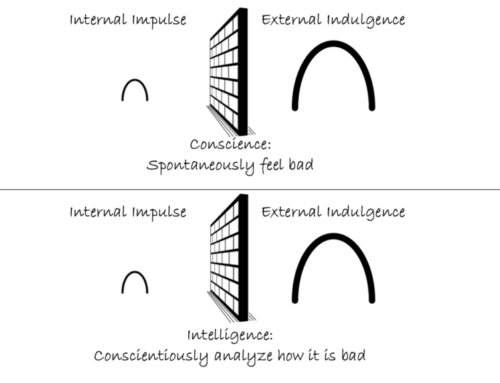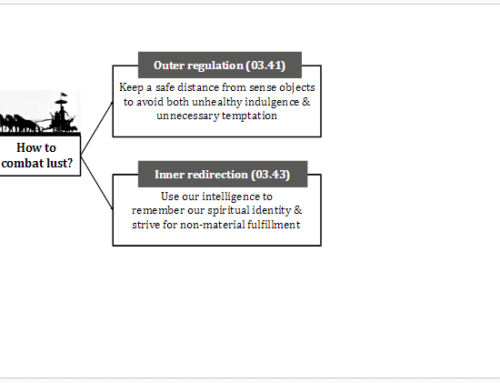The Gita (2.62)(02.63) outlines the path along which illusion tempts us. This fall from virtue happens through a sequence of four d’s: we dwell, we desire, we decide, we degrade. Let’s see how:
Dwell (Stage of thoughts): All temptations begin with thoughts; we casually and carelessly let our thoughts wander to and dwell on an object that allures us towards an immoral and self-defeating pleasure.
Desire (Stage of emotions): When we let our mind dwell on that object, the temptation, being powered by our mind’s imagination, grows to the level of emotions. We start cravings for that object; desires start tugging us invisibly but powerfully towards that object.
Decide (Stage of intentions): If we let ourselves be sucked in by the fantasies stimulated by those desires, then the pull of the temptation becomes irresistible and our emotions become intentions.
Degrade (Stage of actions): If we act on our intentions, then we perpetrate regrettable deeds that degrade and defile us.
However, this sequence of four d’s can be countered by another d – the d of discrimination. The Gita (3.43) urges us to use our power of discrimination – our intelligence – to wrench our mind off the sense object and fix it on Krishna. When our thoughts connect with Krishna, we experience a higher pleasure that gives us the inner strength and spunk to kill the temptations at the level of thoughts or emotions or intentions or, at the very least, before they materialize as actions.
Bhagavad Gita Chapter 03 Text 43
“Thus knowing oneself to be transcendental to the material senses, mind and intelligence, O mighty-armed Arjuna, one should steady the mind by deliberate spiritual intelligence [Krishna consciousness] and thus – by spiritual strength – conquer this insatiable enemy known as lust.”



Excellent